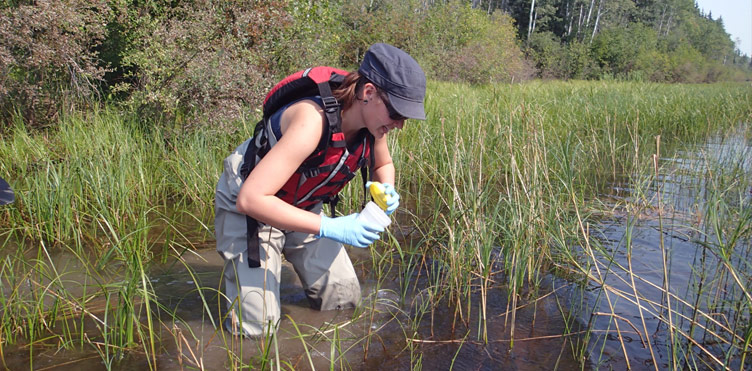
UNB’s Canadian Rivers Institute (CRI) is a shining example of what can be accomplished when we dream big.
In 2001, four UNB aquatic scientists founded CRI with a strong vision and desire to make a difference in the rivers, lakes, and estuaries of New Brunswick and throughout the country. Fifteen years later, the institute has become a world-leader in applied aquatic science, with a network that has expanded not only across Canada, but internationally.
“That’s how it started, four of us with an idea,” says Allen Curry, a science director and founding member of CRI and professor of biology, forestry and environmental management at UNB.
“We worked hard and UNB supported us along the way.”
CRI’s work supports provincial and federal policy and influences industry business practices. An excellent example of this reach is the Mactaquac Aquatic Ecosystem Study.
The Mactaquac Generating Station is expected to reach the end of its service life by 2030. NB Power came to CRI for its expertise in how future options could impact the environment. This has become a $6-million project with ten scientists, more than 50 graduate and undergraduate students, research associates and post-doctoral students.
“It’s incredible to think how, over the course of 15 short years, the institute has grown from the determined efforts of four UNB researchers into an institute of national and international renown,” says UNB President Eddy Campbell.
“The Canadian Rivers Institute is a terrific example of the impact UNB's research can have on our province, our region and beyond,” says Dr. Campbell. “Through partnerships with government, industry and universities around the globe, the institute has become one of the world’s best places to study river sciences.”
Not only is CRI making a difference in government policy and industry practices, they’re training the next generation of world-class aquatic scientists. Students are offered unique training and professional development courses that was enhanced recently by a $1 million Natural Sciences and Engineering Research Council (NSERC) grant.
The institute recently released 15 Years of Impact on Aquatic Science and Policy, a report outlining its accomplishments and plans for the future.
Plans for continued innovation over the next 15 years include:
Moving forward, the focus is on what they’re calling CRI 2.0. In this phase already established members will help to bring young, talented scientists to the forefront, giving them the chance to build teams that will carry CRI through the next 15 years.
“We need young people around us to keep pushing us – that’s key,” says Dr. Curry.